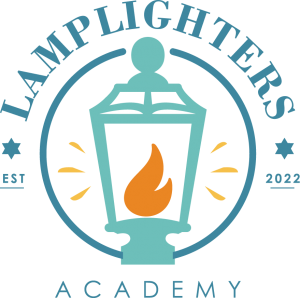Learning can be both rigorous and creative; children can have structure and autonomy. We provide our students with the direct instruction they need to grow as readers and writers, and develop mastery in mathematics. They’ll also have the opportunity to engage, explore, create and problem solve by learning how to learn and apply those skills in Jewish Studies, STEAM, Social Studies and Hebrew. Putting it together gives our students a love of learning, strong academic skills, pride in their Jewish identity and the confidence to approach any problem with a persistent and creative mindset. These are the pillars of our approach to teaching and learning:
Choice & Autonomy
We all feel more empowered when we have some say in our lives. For our children, being involved in their learning creates better engagement, focus, enjoyment and mental health. While specific, the Ontario curriculum leaves enough flexibility to give children choice in how they learn, what they learn and when they learn while still covering the full breadth of the curriculum expectations.
Examples include choice boards, elective activities and flex time to allow children to engage in their learning on their terms.
Inquiry & Play
Children are naturally and inherently curious, filled with wonder. Inquiry- and play-based learning utilizes our children’s own natural interests, curiosity and creativity to engage students in natural learning.
Expert teachers create environments for children to play, prompting inquiries and questions to promote deeper thinking. Our youngest children might learn about volume or water displacement by placing different objects in a tub of water, friction and forces by rolling marbles down different surfaces or simple addition while role-playing as a shuk store owner at the drama centre.
Our older students are encouraged to maintain their natural curiosity by exploring themes or topics that they are personally interested in – velocity in a study of baseball or circuits and electricity in a study of hybrid cars. Our teachers create opportunities for their students to share both in the learning process, but also in the learning themselves. They feel a sense of obligation to contribute to the learning community.
Integrated Project-based Learning
Life can be full of problems…and nobody is in a better position than our children to address the problems of the future.
Project-based learning (PBL) is a creative and engaging learning model that encourages children to collaboratively apply a wide range of skills in order to complete a complex task. Teachers facilitate the problem-solving process by presenting relevant and engaging challenges for them to solve, often in teams.
PBL helps our children work collaboratively, develop resilience, think creatively and critically all while reinforcing key academic skills. Lamplighters Academy takes it one step further by using engaging and hands-on projects to integrate its deep General and Jewish Studies curriculum. Integrated PBL might look like challenging students to come up with ways to conserve water in the Negev, developing ways to raise money for community services to support Holocaust survivors, or constructing a budget for a sleepover camp for underprivileged children.
Making Menches
A Lamplighter is tasked with using their skills and expertise to bring light where there is darkness. More important than any aspect of the curriculum is our collective efforts to provide our students with the desire to use their power for good and feel a sense of obligation to contribute to their community.
Lamplighters Academy facilitates these opportunities so our students don’t just talk about doing good, but actually do good. This looks like field trips to community organizations to learn about how they provide services to those in need throughout the city, or inviting them to come to school so that students (and their families!) can give their own time and energy to support these causes. Beyond that, a Lamplighters flavour can be infused into the daily curriculum so that they understand the clear connection between what they are learning in school and the power it gives them outside of school.
